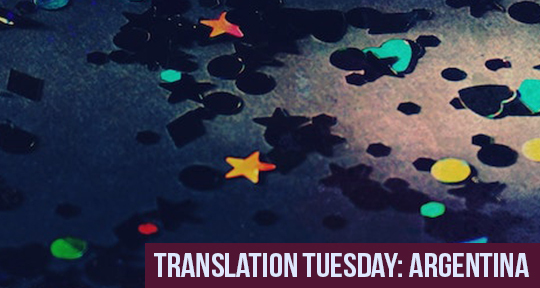Disease brings life into sharp focus and shades last moments with a hazy, but resolute acceptance in Clara Muschietti’s Tachycardia. Elegantly translated from the Spanish by Samantha Cosentino, the following Translation Tuesday is a strikingly honest portrayal of coming to terms with all that is unknown and unfinished in the face of an absolute end.
1
There can’t be wind stronger than this.
Outside, the leaves stirred up. Inside,
the certainty—all of this will come to an end.
We leave, at one point we’ll go. And for now,
we just leave most of our dark mane in a modern hair salon. We didn’t want to.
We don’t know whether to stay or run away,
we don’t know if you were lying.
We don’t know if we were lying.
That cat follows me indiscriminately, we
thank him so much
but he thanks us for domesticating him.
We think about the worst diseases,
and cry,
we meticulously inspect our body
we survey it with an unscientific rigor
we’re already certain
we will die
If we live to be old women we’ll be grateful.
If the sun comes out tomorrow we’ll be grateful.
If this home doesn’t fall apart tomorrow, we’ll be grateful.
The body weighs less—we attribute it to the disease we attribute to ourselves.
The more fear we have, the more we love life.
A few human figures in the distance,
I can’t make anyone out—there are no names
or birthdates—are they my brothers?
Up really close, faces warp,
become accessible.
Your face is there, when I wake it’s there, when I lie down it’s there,
when I’m sleeping it’s there. Your face from afar.
My body from afar feels
irreconcilable. The images you gave me
distracted me—we looked truly happy.
Up close I’m me. From afar I look like my mother.
We can’t know if this will last, we can’t
know until which day,
at which exact hour we’ll say goodbye.
We’ll go down one day for good,
we don’t know which. Hopefully it’ll be sunny
and we’ll be all grown up.

